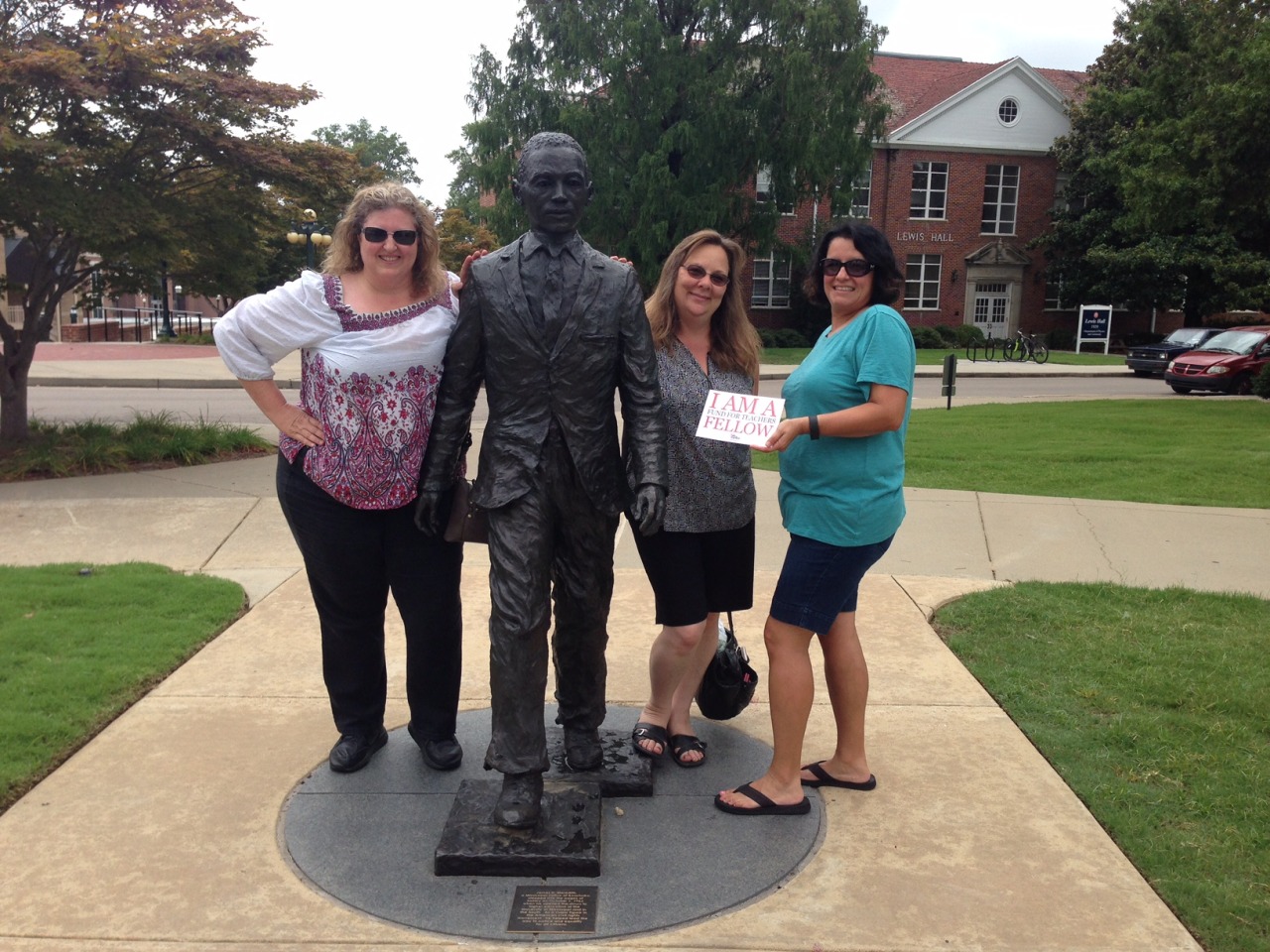Making MLK Meaningful for Elementary Students


Site of Martin Luther King, Jr.’s assassination in Memphis
by, Cecilia Cornejo, Mary Beth Porter, Deidre Ann Hensley | Port Hueneme, CA
It isn’t easy to look at our failings as a society/nation. It is worse, however, to ignore them. We want our students to realize that they have to take ownership in the racial struggle. They can’t expect others to do it for them. They may not have started with the same background and advantages that more privileged students did, but they have to take control of their own destiny. Our job as educators is to open doors to our students and, equally as important, open the lines of communication so they realize their role in a global community. It’s our goal to help them find their “voice” and stand up for what is right.
As part of this process, we designed a Fund for Teachers fellowship to visit historical sites, museums and memorials central to the Civil Rights movement and bring to life in our classrooms the humanity of this pivotal point in history. Our journey took us through four states and some of the most important moments in America’s struggle for racial equality:
- We stood at the site of Martin Luther King, Jr.’s assassination at the National Civil Rights Museum in Memphis.
- We attended an actual service at the 16th Street Baptist Church in Birmingham, AL, where four little girls lost their lives due to hatred, ignorance and evil.
- We toured the home of Medgar Evers in Jackson, MS, where he was killed for his efforts to overturn segregation at the University of Mississippi.
- We honored Evers’ work by standing with the University of Mississippi statue of James Meredith, the first black student admitted there. And,
- We visited the International Civil Rights Center housed in the Woolworth’s building where four Black men took a stand and decided that they would not be seen as second class citizens.
This last stop was incredibly moving and the perfect end to our civil rights journey. It was our tour guide Charles’ final tour ever at the center. His presentation was filled with passion and the emotion that we are sure the civil rights participants felt. He gave us information and details about the movement with such a dramatic flair that we felt like we were experiencing it through him. At the end, we linked arms like we were walking across the Edmund Pettus Bridge or Marching on Washington. He had us promise to continue the fight for civil rights, while explaining how he would now begin his career as a teacher. We thought how perfect it was – not only would we impact our students by teaching them about the movement, but we were confident that the next generation of teachers would be like us. They would encourage their students of all backgrounds to fight for freedom for all. As Coretta Scott King said, “Freedom is never really won; you earn it and win it in every generation.” With our fellowship, we hopefully did our part to help the next generation win freedom.
Each stop broadened our awareness and sensitivity to struggles of the past, and how they are linked to the present. The struggle continues worldwide, and as educators, we need to keep the message of diversity and equality in the forefront of our teaching.
As Martin Luther King, Jr., said, “Commit yourself to the noble struggle for equal rights. You will make a greater person of yourself, a greater nation of your country, and a finer world to live in.”
By living this ideology on our fellowship, a seed was planted that will continue to impact our careers and the lives of our students. We now have the first-hand experience and knowledge that will inspire students to continue their education and their crusade once they leave our classrooms.
For more examples of FFT Fellows pursuing learning around civil rights, check out these stories:
 Back to Blogs
Back to Blogs